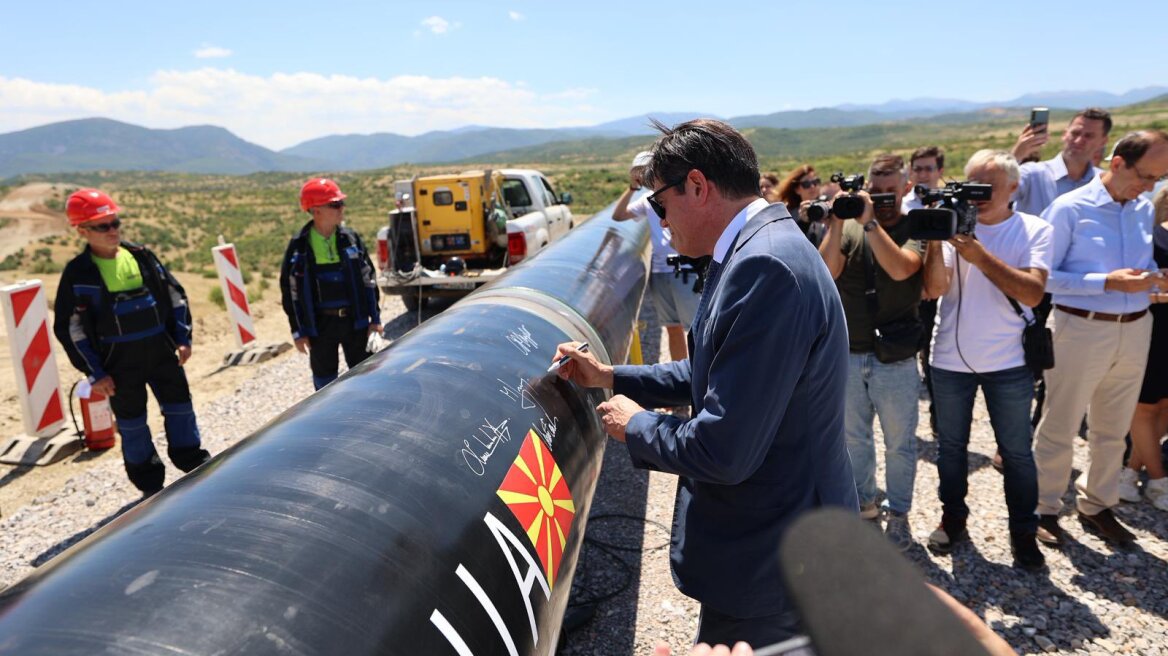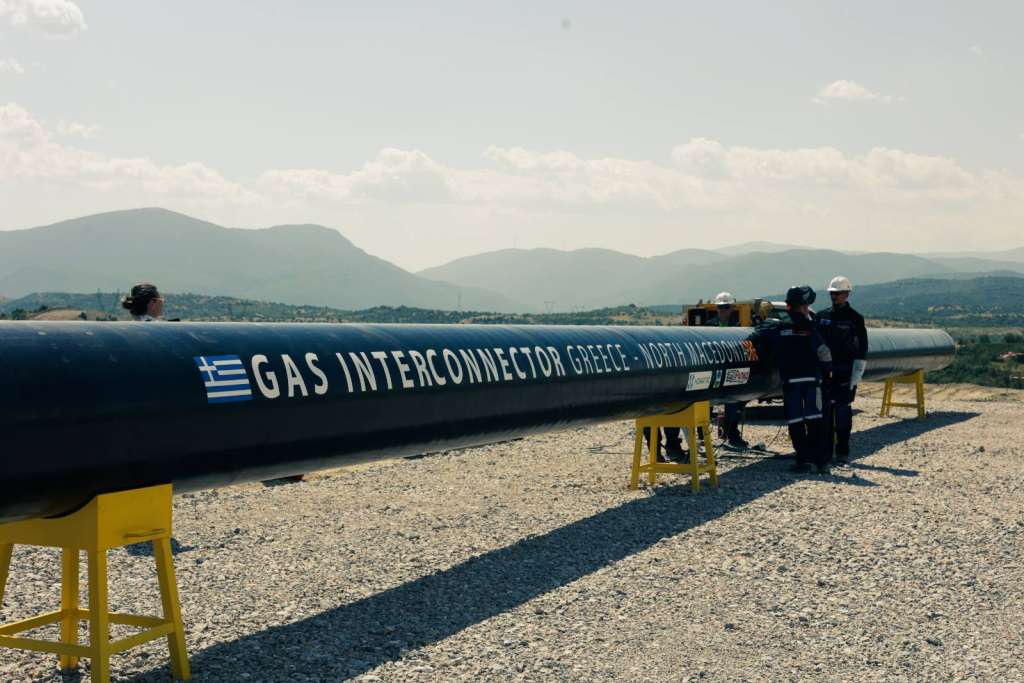On Wednesday, July 9, work began on the construction of the 67 km long section of the Greece-North Macedonia natural gas interconnector pipeline, within the territory of the latter and up to the border with Greece.
The relevant ceremony, which took place near the city of Negotino, was attended by the Prime Minister of North Macedonia, Hristian Mickoski, and several ministers of his government, the ambassadors of the US, the EU and Greece to the country, as well as representatives of the State Gas Transmission Operator of North Macedonia (NOMAGAS), DESFA, the Serbian SRBIJAGAS, the European Bank for Reconstruction and Development EBRD, the European Investment Bank (EIB), etc.

Pipeline Characteristics:
The Greek section of the pipeline, 56 km long, will start from the Nea Mesimvria area in Thessaloniki and end in the Evzoni-Gevgelia area. From there, the 67 km long cross-border section of the project will begin, ending in the Negotino area in North Macedonia.
The pipeline will have a total length of 123 kilometers and will interconnect the gas transmission systems of the two countries. Its initial capacity will be 1.5 billion cubic meters per year, with the possibility of expansion to 3 billion cubic meters per year, while studies have been carried out to ensure that the pipeline adopts the appropriate specifications for the transport of green hydrogen.
The new pipeline will enable access to new markets, enhancing the energy security of the wider region and supporting the energy transition, including the future transport of hydrogen, as it is 100% compatible for its transport. In addition, the project will significantly enhance the diversification of natural gas supply sources for North Macedonia, providing access to the Greek natural gas network and the LNG import terminals of Revithoussa and Alexandroupolis. The important infrastructure project, which is expected to be completed in the first half of 2027, will strengthen Greece’s position as an energy hub for Southeastern Europe.
Hristian Mickoski, speaking today at the ceremony for the start of construction work on the North Macedonian section, emphasized that the project will bring new sources of natural gas, stable supply, lower prices for the citizens of his country, greater competitiveness for companies and, as he emphasized, a strong message that the country is finally becoming part of the European energy network.
“We are connecting to the natural gas pipelines of our neighbors. This will turn us into a regional energy crossroads. This means more choices, more stability and lower costs, also we will no longer be a tailwind in the network, but that we will be at the heart of the regional energy flow,” the Prime Minister of North Macedonia also said.
US Ambassador to North Macedonia Angela Angeler pointed out that this is a long-awaited project that demonstrates independence and strengthens relations in terms of energy and economic development.
“A strategic investment in security, prosperity, and sovereignty. Energy diversification is important. Regional cooperation is important, as is partnership. The United States, as the largest LNG producer, wants our natural gas transported through this pipeline as soon as possible. We want to see the economic security and regional development that this provision will bring for all of us. Partnerships with friends and neighbors are proving to be much more than bureaucratic and political maneuvering,” the US ambassador said.
Sofia Filipidou, the ambassador of Greece, also expressed satisfaction, saying that this important strategic project provides regional energy security, European energy security and connectivity between the two countries.
The Greek section of the pipeline is being built by the Greek company “TERNA”, which began preliminary work five months ago.
The project is being constructed by the local interest company “RAPID BUILD”, based in Kumanovo, which should complete the work in 22 months with the interconnector set to be fully operational in 2027. Although there are still uncleared plots of land in the field with expropriation and unterminated lease agreements for agricultural land, where the contractor cannot enter to work. There are also areas under forest that require permits for its cutting, and the timber to be removed from the site.
North Macedonia and Serbia have signed a memorandum of understanding for the extension of the pipeline into Serbian territory, with Belgrade taking a significant step away from Russian gas and Greece supplying Serbia with gas via North Macedonia.

